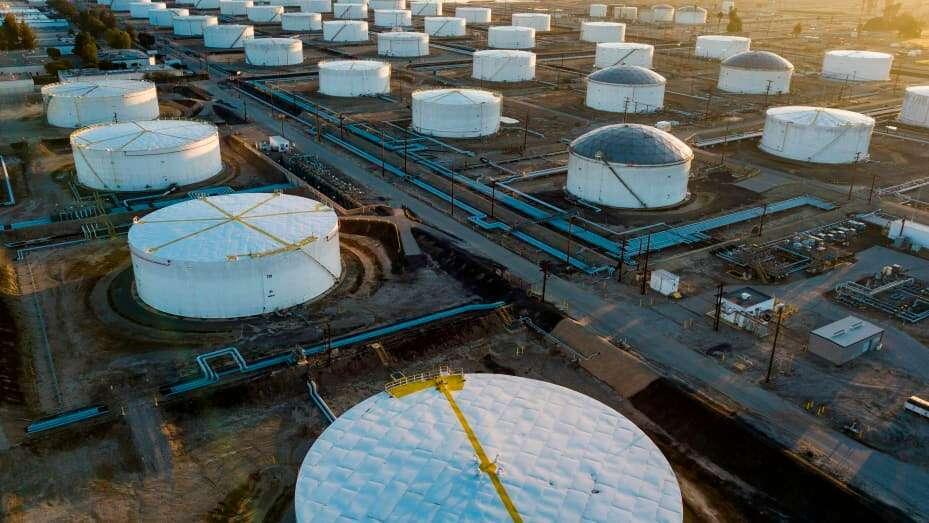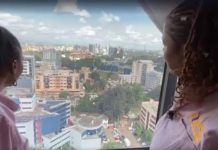Africa-Press – Botswana. Keeping Liquefied Petroleum Gas (LPG) cylinders inside houses for cooking is hazardous, says Botswana Energy Regulatory Authority (BERA) Engineering Manager-Petroleum, Mr Gift Bakumbi.
Addressing a kgotla meeting in Masunga on August 10, Mr Bakumbi advised residents to keep their LPG cylinders outside their houses to prevent explosion or fire outbreaks caused by leakages or pressure.
He said heat caused contents inside the cylinder to be under pressure and as such, cylinders should be kept where there was enough shade to reduce heat.
“In case cylinders are kept inside houses, there should be enough ventilation through opening of windows and doors for leaked gas to escape,” he said adding that they should be kept at least two metres away from the stove.
He advised that children should be taught about dangers posed by LPG as it burnt faster and quicker than paraffin and as such, they must be taught to have matches ready before turning the nozzle on the stove as gas would spread fast.
Mr Bakumbi told residents that they should ensure there were no leakages between the regulator and the stove adding that the smell of gas did not signify that it was about to finish but a sign of leakage, which had to be investigated.
He advised that users of gas should always inspect the regulator and hose pipes for cracks and make it a point that hosepipes were replaced every two years not to wait until they were no longer flexible or break when bent.
On other issues, Mr Bakumbi advised consumers to take note and be privy to the amount of gas in the cylinder. He said digits on the cylinder should be taken into consideration as the red number represented the amount of gas in the cylinder while black numbers were for the weight of an empty cylinder container.
“When buying gas the cylinder should be weighed in your presence and the total addition of the red and black figure should be the reading on the scale,” he explained. He said if the reading on the scale was high or low, one should ask for a different cylinder and the same process conducted until the addition equals the scale reading.
He highlighted that should one take the cylinder when the readings were low, they would be cheated as it was not full while higher readings put the consumer’s life in dangers because of the high pressure carried by the cylinder.
Subsequently, he observed that there were licenses that could be offered to trade with gas being the wholesale license where one imported gas and fill cylinders to sell to retailers in bulk and not to individuals.
“A cylinder would only be filled at wholesalers. The other license to be issued would be for bulk transportation and that of cylinder transportation and the Storage Business License, which would assist as there were no enough storage in the country. There would also be LPG consumer installation license,” he said.
He said to construct LPS plant, one needed to apply for authorisation, which was valid for two years renewable.
“Requirements for construction would be valid land rights and if borrowed, a proof should be provided. The land should be surveyed and set aside for business or change of land use provided,” he said.
Mr Bakumbi said the applicant should have education and knowledge of handling gases, had an environmental impact assessment for the area of operation, provide plans for the building, financial projection and statement.
“For small organised groups in the community who want to erect cages to sell gas, laws are relaxed, made flexible and set aside to allow them to trade with gases after completing a form guided by a provided checklist,” he said.
Mr Bakumbi said dealers in gas were forced to abide by the laws of Botswana written or spoken.
“They are not allowed to sell overfilled or half-filled cylinders and in the event of an accident, they should report within 12 hours or will face a charge.Retailers are advised to issue consumers with a receipt to use in case of complaints, and if not would be liable to a charge,” he said.
The receipt, he said should bear business name and address, size of cylinder, price of cylinder paid not the negotiated one, date of purchase, weight of cylinder at time of purchase, identity number of cylinder written on the receipt which will assist in case of theft.
Responding to the presentation, Mr John Monyamane inquired about gas cylinders without markings or weight and was told that it was a crime.
Mr Roger Nchochi wanted to know the price of a cylinder and the response was it varied from one business to another and that the receipt be kept safe as it could be returned for cash if no longer needed.
Some asked if it was safe to bury the gas pipe or hosepipe underground or on the wall and the response was that only pipes specific for gas could but it was not proper to bury hosepipe.
For More News And Analysis About Botswana Follow Africa-Press






